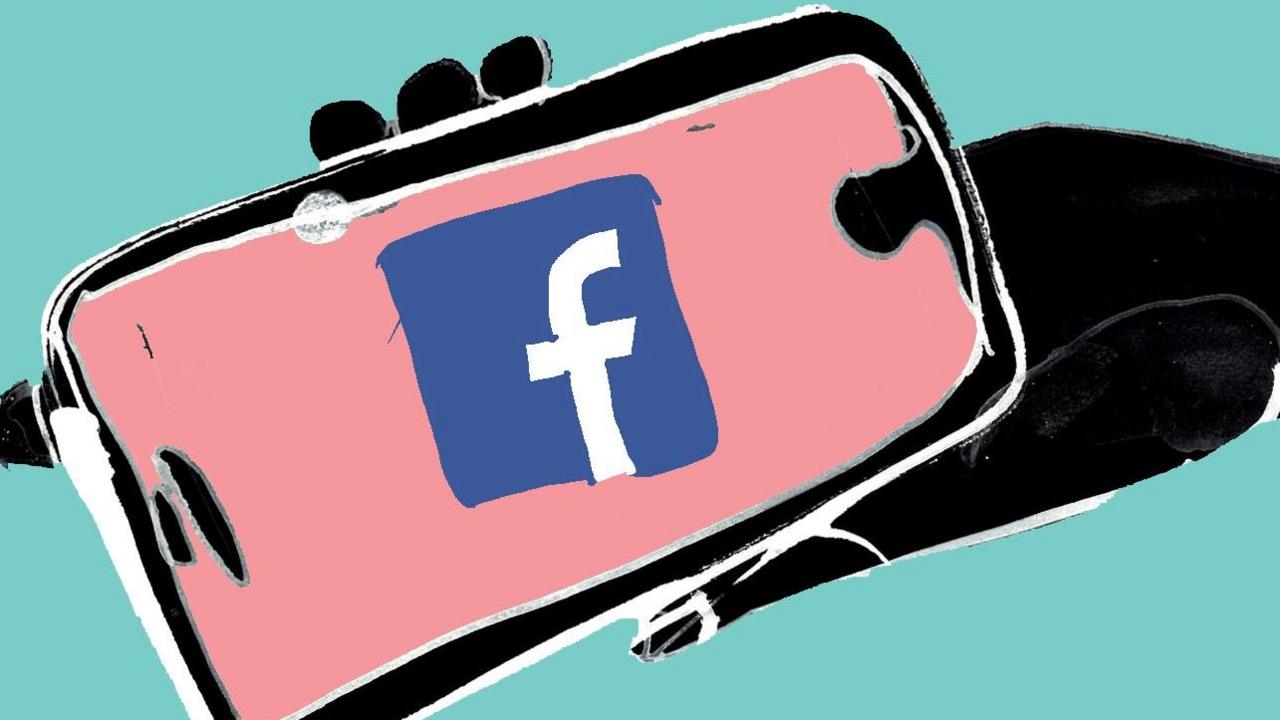Tech Tent: Facebook in a scrape over data
- Published

What have we learned about what happens when we share our data with Facebook?
On this week's Tech Tent podcast, we look at the new revelations and consider the impact on the company and its users.
Stream or download, external the latest Tech Tent podcast
Listen live every Friday at 15.00 GMT on the BBC World Service
On Wednesday, Facebook revealed that as many as 87 million people have had their data improperly shared with the political consultancy Cambridge Analytica.
The social network came up with that figure after looking at how many people had installed a personality quiz app that was designed to gather data from those who used it, and crucially from all of their friends too.
But there was another startling revelation.
Facebook said it had decided to remove a feature that allowed people to search for someone using their telephone number.

Mark Zuckerberg spoke to reporters
The featured had been abused for years by what the company called "malicious actors" who had found ways of scraping personal data from millions of people's public profiles.
In an hour-long conference call with reporters, Mark Zuckerberg was asked when Facebook had learned about this.
He replied: "We looked into this and understood it more over the last few days as part of the audit of our overall system.
"Everyone has a setting on Facebook, that controls - it's right in your privacy settings - whether people can look you up by your contact information.
"Most people have that turned on, and that's the default, but a lot of people have also turned it off.
"So it's not quite everyone, but certainly the potential here would be that over the period of time that this feature has been around, people have been able to scrape public information," he added.
Mr Zuckerberg went on to say: "If you have someone's phone number, you can put that in, and get a link to their profile which pulls their public information.
"So, I certainly think that it is reasonable to expect that if you had that setting turned on, that at some point during the last several years, someone has probably accessed your public information in this way," he explained.
In other words, this probably affects a large proportion of Facebook's two billion users.
But if all of this data was voluntarily posted online, is there really much cause for concern?
Security expert Ken Munro tells us why we should be worried.
He says criminals will find this data very useful for identity theft and other frauds.
"A great example would be maybe someone pretending to call from your bank," he explains.
"They could use information they'd gathered from online sources like this to make it more plausible, to make you believe they are your bank."
More is likely to emerge about Facebook's data policies next week, when Mark Zuckerberg gives testimony to a number of congressional committees.
Facebook's founder said in that conference call that he was still the best man to lead the company and that there had been no impact on user numbers or ad sales from the recent controversies.
But that does not mean he can relax.
Every year Mr Zuckerberg sets out a personal ambition - from learning Chinese to building his own AI.
This year, he decided his resolution, external would be to fix Facebook.
With politicians and regulators now putting his company under the microscope, that job may stretch beyond 2018.
Also on the podcast this week:
we learn about Microsoft's ambitious target to build a commercial quantum computer within five years
and we discuss the incredibly influential Oxford University report that predicted nearly half of American jobs could be vulnerable to automation, which has been judged to be far too gloomy
Stream or download, external the latest Tech Tent podcast
- Published6 April 2018

- Published5 April 2018
